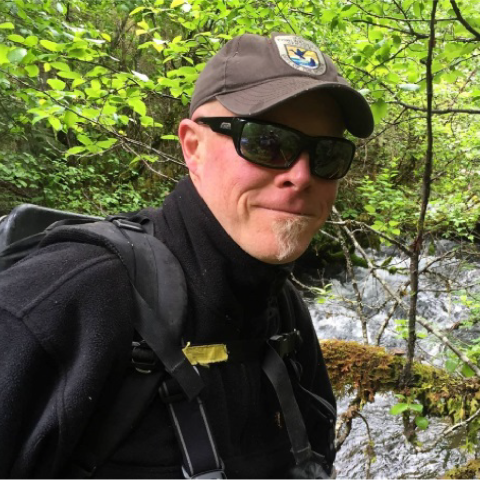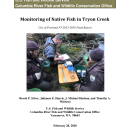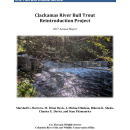
1211 SE Cardinal Court
Suite 100
Vancouver, WA 98683
United States
About Mike Hudson
As the Regional Climate Change Coordinator, Mike serves as the chair for our Regional Climate Workgroup and represent Legacy Region 1 as the vice-chair for the National Climate Team. Through these efforts, He works across Service programs to better integrate climate science into the Service's roles and responsibilities, and communicate how we can best address our changing climate within the scope of the Service's mission. As a fish biologist, Mike is part of the Passage and Habitat program in our office and primarily works on Bull Trout recovery efforts in SW Washington and Oregon, Spring Chinook Salmon and Winter Steelhead recovery through the Willamette Action Team for Ecosystem Restoration, and urban conservation.
Program: Passage and Habitat Assessment
Current Projects:
1. Providing technical expertise on Bull Trout recovery and Pacific Lamprey conservation projects
2. Contributing to the Willamette Action Team for Ecosystem Restoration to address passage issues for aquatic species in the Willamette River Basin
3. Implementing Bull Trout reintroduction, monitoring and feasibility assessments throughout the Columbia Basin
4. Serving as the Regional Climate Change Coordinator for IR9/12
a. Coordinating Reginal Climate Workgroup activities
b. Representing the region and Science Applications Program in regional and national forums
Background: Originally from Illinois, Mike went to the University of Illinois, eventually earning a M.S. in conservation genetics. After grad school, he migrated to Utah in 1996, spending two years managing a conservation genetics lab at Utah State University, two years as a Native Aquatic Species Biologist with the Utah Division of Wildlife Resources, and four years as the Project Leader for the UDWR-Moab Field Station. Mike's time in Utah solidified his love for working with sensitive, threatened, and endangered species. In 2004, he came to work at the CRFWCO as the lead biologist for the Native Trout program. Prior to his current role, Mike spent a little over 9 years working on population assessments for native trout, biological response monitoring to tidal marsh restorations, and urban conservation.
At CRFWCO since: 2004





